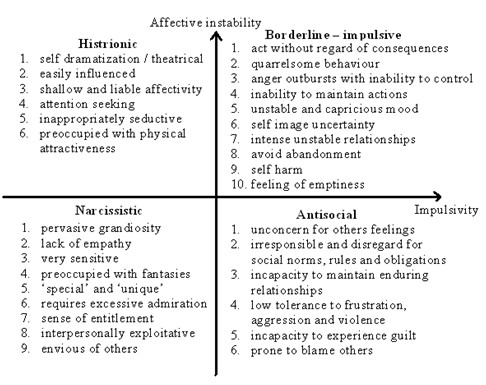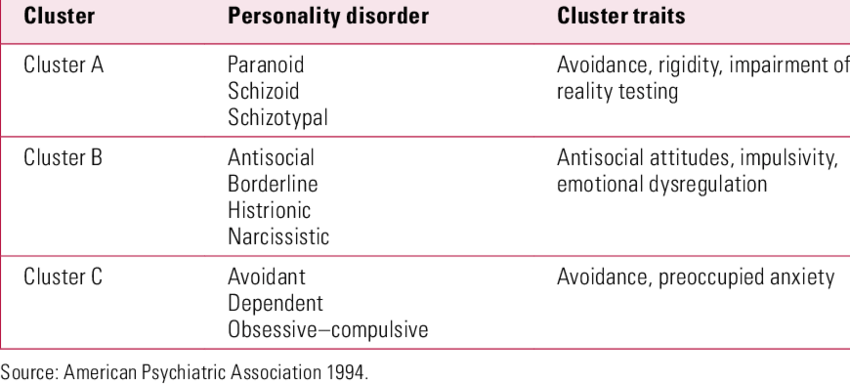
There are typically three major clusters of cluster B personality disorders: cluster C, cluster A, and cluster B. Each cluster has many different characteristics which are used to classify the various symptoms of the disorder.
Each personality disorder has its own set of symptoms. The diagnosis of each one depends on the severity of each symptom. In most cases, you will have more than one personality disorder.
The most commonly diagnosed personality disorder is depression. Depression is usually the result of a life event that can result in loss of job, loss of social status, divorce, or other issues that make you feel sad. Many times, people who have experienced these kinds of life changes will become depressed. People who suffer from depression will often go through cycles of feeling good and then feeling bad.
Another commonly diagnosed personality disorder is bipolar disorder. People who suffer from bipolar disorder experience intense mood swings and cannot control their feelings. They may be in one state of extreme emotional state and in another state of extreme emotional state.
The last of the four major clusters of personality disorder is also known as schizoaffective disorder
People who suffer from this disorder have a recurring type of mental illness and it may include mood swings, anxiety attacks, insomnia, and a feeling of unreality.
Cluster B personality disorder affects about three-quarters of people with bipolar disorder. Many times, the people will have a history of abuse or trauma. This history will play a role in their behavior when they are diagnosed with Bipolar disorder. There are studies that suggest that these people may be genetically predisposed to having bipolar disorder.

It is important that anyone who suffers from Cluster B personality disorder seek medical attention because this condition can lead to serious physical and psychological problems. It can also lead to suicidal thoughts.
If you suspect you have Bipolar or another personality disorder, it is important that you get help immediately
The earlier you can treat the problem the better. The sooner you can get the treatment, the better the chance of you living a normal life.
As discussed earlier, you may have multiple personality disorder. Each personality disorder can be treated differently, depending on the severity. When a person has multiple personality disorder, it is important to get the help of a qualified mental health professional.
If you have multiple personality disorder, your therapist will need to assess your situation and determine which personality disorder you have. causing problems in your life. In some cases, you may be dealing with only one disorder, while in others, you may be dealing with two or more. In some cases, you may only have one personality disorder.
Your therapist will do many things to determine what kind of personality disorder you have, such as asking questions, gathering information, and talking to family and friends who know you. about your personality. This will help the therapist determine if you have one or more personality disorders. and what disorders are causing your symptoms.
In some cases, your counselor may ask you to take psychotherapy, medication, or both. to get better. It is important for you to understand that in most cases, treatment should be started right now.
If you find that you are suffering from Cluster B personality disorder or any other personality disorder, there are a number of support groups that offer assistance for you to deal with your condition. There are many support groups online as well. Once you receive treatment, it will be helpful to read articles, listen to books, or attend seminars on the topic of dealing with this kind of condition.